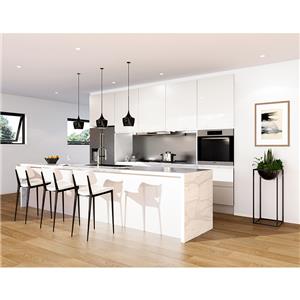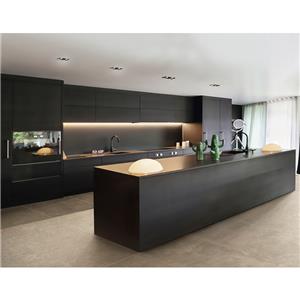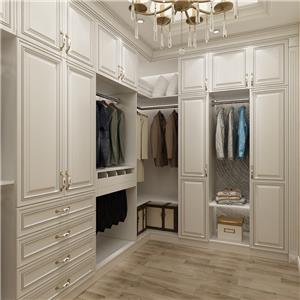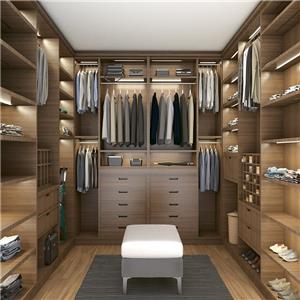Concrete Kitchen Cabinet Countertop: Cros and Cons
When it comes to designing a kitchen, choosing the right countertop can be a difficult decision. There are a variety of materials to choose from, including granite, marble, quartz, and concrete. Concrete kitchen cabinet countertops have gained popularity in recent years, and for good reason. In this article, we’ll explore the pros and cons of concrete kitchen cabinet countertops to help you decide if they are the right choice for your kitchen.
| Pros of concrete countertop | Cons of concrete countertop |
|---|---|
| Style | Porous |
Customizable | High cost |
| Durability | Installation |
| Easy to maintain | Requires regular maintenance |
| Eco-friendly | Prone to cracking |
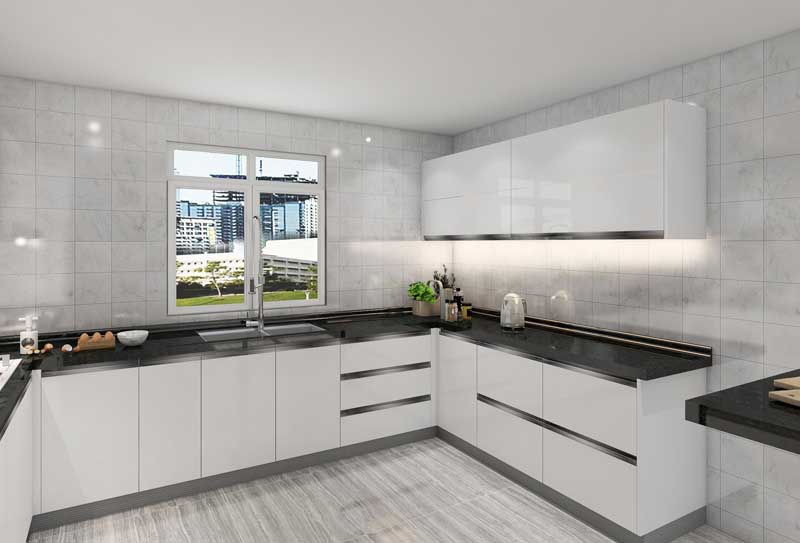
Pros of Concrete Kitchen Cabinet Countertops:
Durability: Concrete is a highly durable material that can withstand daily wear and tear. It is also heat-resistant, making it an excellent choice for kitchens where hot pots and pans are commonly placed on the countertop.
Customizable: Concrete kitchen cabinet countertops are highly customizable. They can be cast in any shape, size, or thickness, making it easy to create a unique design that fits your kitchen perfectly.
Style: Concrete kitchen cabinet countertops offer a unique and modern look that can complement a variety of kitchen styles, from contemporary to industrial.
Easy to maintain: Concrete is a low-maintenance material that requires minimal upkeep. It can be easily cleaned with soap and water, and any stains can be removed with a mild abrasive cleaner.
Eco-friendly: Concrete is a sustainable material that can be made with recycled materials, and it can also be recycled at the end of its lifespan.
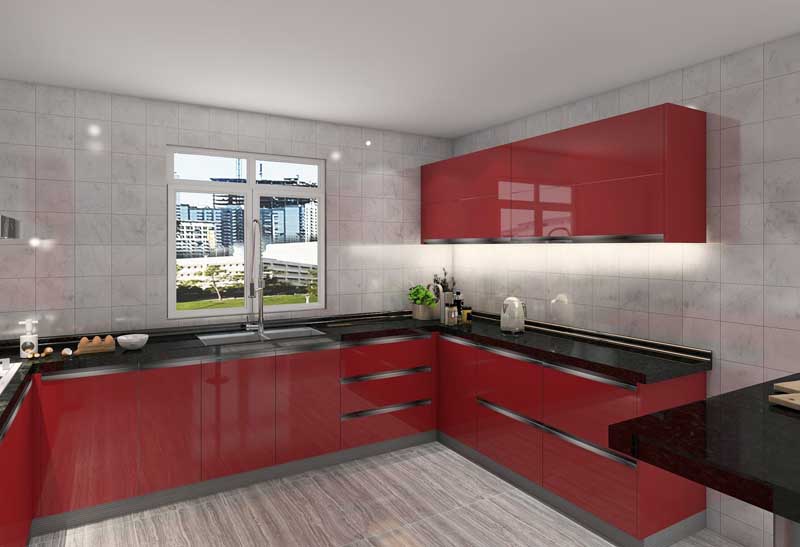
Cons of Concrete Kitchen Cabinet Countertops:
Porous: Concrete is a porous material, which means it can absorb liquids and stains. This can be a problem if spills are not cleaned up quickly, as they can leave permanent marks on the surface.
Prone to cracking: Concrete kitchen cabinet countertops can be prone to cracking if they are not installed properly or if they are subjected to heavy weight or impact.
Cost: Concrete kitchen cabinet countertops can be more expensive than other materials, such as laminate or tile.
Installation: Installing concrete kitchen cabinet countertops requires specialized skills and equipment, which can add to the overall cost of the project.
Maintenance: While concrete is easy to clean and maintain, it does require periodic sealing to prevent staining and moisture penetration.
In conclusion, concrete kitchen cabinet countertops offer many advantages, including durability, customization, and style. However, they also have their drawbacks, such as porosity and cost. If you are considering concrete kitchen cabinet countertops for your kitchen, it is important to weigh the pros and cons carefully before making a decision. Ultimately, the right countertop for your kitchen will depend on your budget, style preferences, and functional needs.
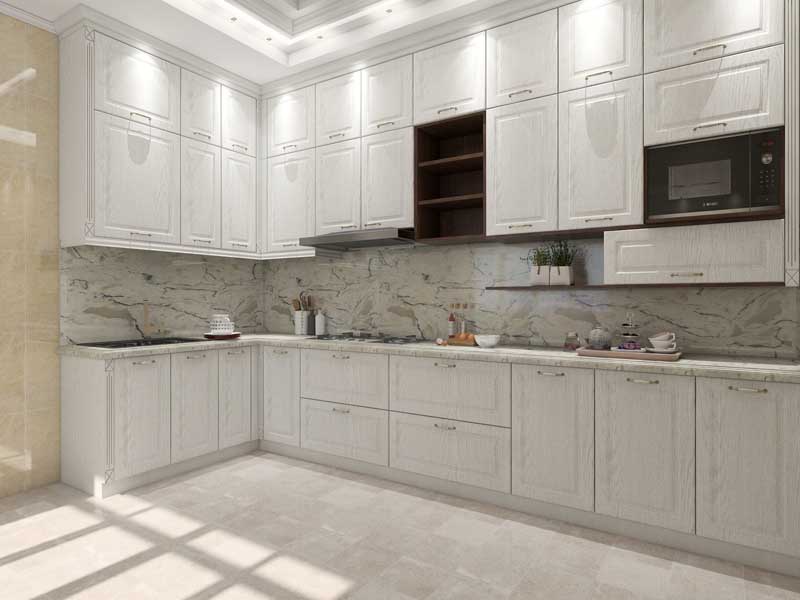
Making Concrete Countertops: An Overview
Making the Mold: Using Melamine-Coated Particleboard
Mixing Concrete: Get a Specially Formulated Countertop Mix
Pour concrete: Trowel fills the entire form, then tamps or vibrates to release air bubbles
Cured Concrete: Cover with plastic sheeting and allow to dry for at least 18 hours
Removing the slab from the mold: disassemble the mold and pull it away from the edges
Finish the surface: sand down any imperfections and fill in the voids with mud
Using a sealer: Make sure the concrete is fully cured, clean, and dry before sealing
Installing your new countertop: Get help lifting the countertop into place, using silicone caulk to adhere it to your cabinets
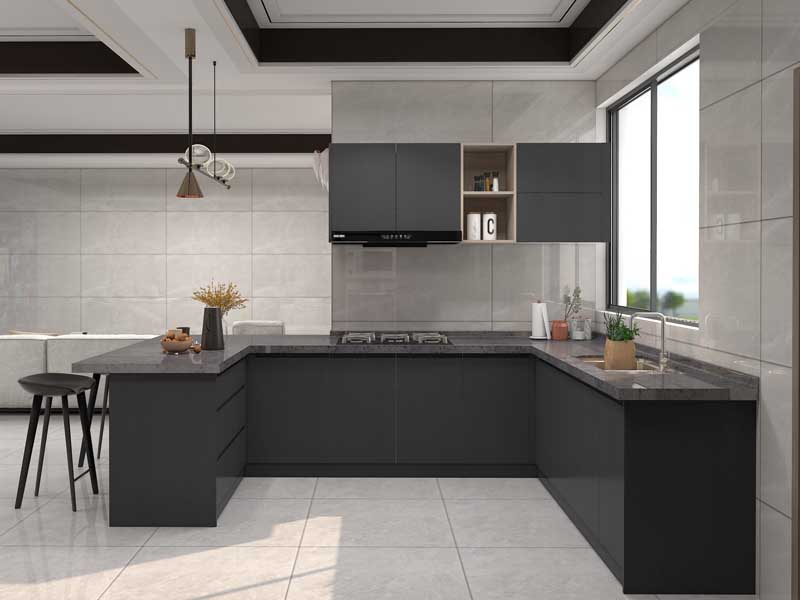
Concrete Countertops FAQs
How long will concrete countertops last?
Concrete countertops can last for many years when properly maintained. With regular cleaning and proper care, concrete countertops can last for decades.
Do concrete countertops crack easily?
No, concrete countertops are quite durable and are not prone to cracking easily. They are, however, more prone to chipping than other countertop materials.
Can you put hot pans on concrete countertops?
Not recommend. Concrete is a porous material and can be damaged by extreme heat, so it is important to use a trivet or hot pad to protect the countertop.
Are concrete countertops expensive?
Yes, concrete countertops are typically more expensive than other countertop materials such as laminate or granite. The cost of concrete countertops can range from $60 per square foot to more than $100 per square foot, depending on the complexity of the design and installation.
What is the upkeep on concrete countertops?
The upkeep on concrete countertops is minimal. Most countertops only require a damp cloth or mild cleaning solution to wipe away any dirt or spills that may occur. If the countertop is sealed, it should also be resealed every few years to keep it looking like new.
Related articles
Kitchen Cabinet Materials: Total Guide
Pros and Cons of Butcher Block Kitchen Countertops
Granite Kitchen Cabinet Countertop: Pros and Cons
Quartz Kitchen Cabinet Countertop: Pros and Cons
Marble kitchen cabinet countertop: pros and cons

